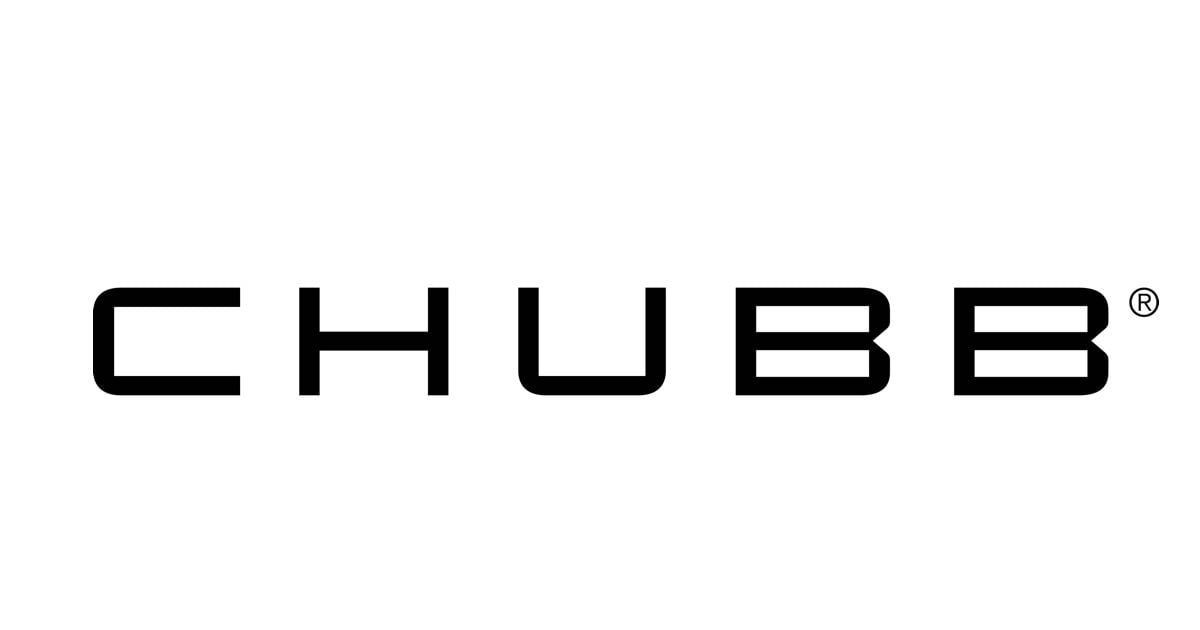Key takeaways
Chubb, Andover Companies and USAA received the highest ratings in our analysis of home insurers in Massachusetts.
USAA is the best cheap insurer in Massachusetts, with a star rating of 4.8 and an average annual premium of $1,555.
Chubb, Andover Companies and USAA are among the best home insurance companies in Massachusetts, according to our analysis.
To help you find the best home insurance in Massachusetts, we gathered and analyzed data from insurance companies across the state. These are the insurers that earned 4.5 stars or more.
Rates are based on a sample homeowner with no claims, $300,000 of dwelling coverage, $300,000 of liability coverage and a $1,000 deductible.
Company | NerdWallet star rating | Average annual rate |
|---|---|---|
Not available | ||
$1,685 | ||
$2,040 | ||
Not available | ||
$2,590 | ||
Not available | ||
USAA* | $1,555 | |
*USAA membership is open only to active military, veterans, some federal employees and their families. | ||
Get home insurance quotes in minutes
Answer a few questions to see custom quotes and find the right policy for you.The best home insurance companies in Massachusetts
Note: Some insurance companies included in this article may have made changes in their underwriting practices and no longer issue new policies in your state.

Chubb
- Far fewer consumer complaints than expected for a company of its size.
- Standard coverage includes features that many companies offer only as extras.
- Perks to help you protect your home.
- Most consumers can't get a quote online and will instead need to contact a local agent.
Chubb is a solid choice for well-to-do homeowners, offering high limits and coverage other insurers often charge extra for. For example, the company’s policies include extended replacement cost coverage for the structure of your home. This is useful in case it costs more than your dwelling limit to rebuild after a disaster. Chubb’s standard policies also cover water damage from backed-up sewers and drains.
Policyholders with secondary or seasonal homes in Massachusetts are eligible for Chubb’s Property Manager service at no charge. With this service, a Chubb representative will check your home after a hurricane and report its condition to you. They can also help prevent further damage and submit a claim on your behalf.
» READ MORE: Chubb homeowners insurance review

Andover Companies
- Far fewer consumer complaints than expected.
- Includes more generous dwelling and personal property coverage than most insurers.
- Many additional coverage options to choose from.
- Limited online experience.
The Andover Companies’ home insurance generally comes with more coverage than a standard home insurance policy provides. In fact, Andover stands out for providing guaranteed replacement cost coverage for most homes. This means Andover will pay to rebuild your home after a covered claim, no matter what it costs.
Most Andover policies include replacement cost coverage for personal belongings, which means you can get enough to buy brand-new stuff after a covered claim. You can add coverage for valuables like jewelry or firearms, or to replace refrigerated food you have to throw out after a covered power outage.
» READ MORE: Andover Companies homeowners insurance review

Amica
- High customer satisfaction ratings and low consumer complaints.
- Platinum Choice package offers extra coverage.
- Dividend policies can return a portion of your premiums.
- You can start a quote online but may have to finish the buying process by phone.
Amica shines when it comes to coverage. For example, you can customize your policy with extra coverage above your dwelling limit. This could be useful in case your house costs more to rebuild than expected. You may also want to add coverage for identity theft or damage from backed-up drains.
The company stands out for its customer service. Amica has a very low rate of complaints compared to other insurers, according to the National Association of Insurance Commissioners. The company also earned high marks in two recent J.D. Power surveys about home insurance and customer satisfaction.
» READ MORE: Amica homeowners insurance review

Cincinnati Insurance
- Various coverage options.
- Far fewer complaints than expected for a company of its size.
- Coverage available for higher-value homes.
- No online quotes.
- Very little information on website.
If you want to support companies that value sustainability, consider Cincinnati Insurance. In recent years, the insurer has reduced fossil fuel emissions from both its facilities and company vehicles. When you buy Cincinnati home insurance, you may be able to add a “green upgrade” endorsement. With this coverage, you can use eco-friendly materials to repair or rebuild your home after a claim.
The company offers lots of other options, including comprehensive coverage for high-value homes. You may be able to add coverage for things like identity theft, personal cyber attacks or certain types of water damage.
» READ MORE: Cincinnati homeowners insurance review
Allstate
- Lots of discounts to help you save.
- Home-sharing coverage available.
- Many ways to customize your coverage.
- Ranked below average for consumer satisfaction in recent J.D. Power studies.
Allstate offers lots of ways to customize your policy, including replacement cost coverage for your personal property and coverage for water damage caused by backed-up drains. Other options may include home-sharing coverage and reimbursement for replacing damaged items with energy-efficient versions.
You may also be able to upgrade your policy with the Enhanced Package. One benefit of this package is Deductible Rewards, which takes $100 off your deductible at sign up, plus $100 off each year you go without filing a claim. If you do file a claim, your rates won’t go up.
» READ MORE: Allstate homeowners insurance review

Openly
- Policies typically include guaranteed replacement cost coverage for your home's structure.
- Broad coverage for personal belongings.
- No restricted dog breeds.
- No online quotes.
Openly’s default homeowners policy goes significantly beyond those of many other insurers. Most notably, it offers guaranteed replacement cost coverage for the structure of your home. That means if your house is destroyed by a covered disaster, Openly will pay whatever it takes to rebuild it the way it was before.
Unlike many other insurers, Openly doesn’t have dog breed restrictions that could affect your liability coverage. It may also be a good bet for homeowners with jewelry or other valuables, with up to $100,000 of blanket coverage available for these items.
» READ MORE: Openly homeowners insurance review

USAA
- Policies include standard coverage that often costs extra elsewhere.
- Far fewer customer complaints to state regulators than expected for a company of its size.
- Available only to active military members, veterans, some federal employees and their families.
USAA sells homeowners insurance to active military members, veterans, some federal employees and their families. If that’s you, you may want to consider USAA. The company offers specific perks for military members, such as deductible-free coverage for uniforms and equipment. USAA will also waive your deductible if your personal property is damaged or lost due to war.
USAA homeowners insurance has certain features that many insurers charge extra for. For example, USAA covers your personal belongings on a replacement cost basis. That means you’ll get enough money to buy brand-new replacements for damaged items. Many companies pay only what your items are worth at the time of the claim.
» READ MORE: USAA homeowners insurance review
How much does homeowners insurance cost in Massachusetts?
The average annual cost of home insurance in Massachusetts is $1,595. That’s 24% less than the national average of $2,110.
Those rates are for homeowners with no recent claims on their record. In Massachusetts, policyholders with one recent claim pay an average of $1,850 per year — an increase of 16%.
Average cost of homeowners insurance in Massachusetts by city
Your premium will vary slightly depending on where you live within Massachusetts. For example, the average cost of homeowners insurance in Boston is $1,685 per year, while homeowners in Worcester pay about $1,575 per year, on average.
City | Average annual rate | Average monthly rate |
|---|---|---|
Boston | $1,685 | $140 |
Brockton | $1,965 | $164 |
Brookline | $1,645 | $137 |
Cambridge | $1,290 | $108 |
Chicopee | $1,410 | $118 |
Dorchester | $1,935 | $161 |
Fall River | $1,970 | $164 |
Framingham | $1,360 | $113 |
Haverhill | $1,425 | $119 |
Lawrence | $1,625 | $135 |
Lowell | $1,445 | $120 |
Lynn | $1,835 | $153 |
Malden | $1,335 | $111 |
Medford | $1,315 | $110 |
Methuen | $1,425 | $119 |
New Bedford | $2,075 | $173 |
Peabody | $1,485 | $124 |
Plymouth | $2,095 | $175 |
Quincy | $1,615 | $135 |
Revere | $2,010 | $168 |
Somerville | $1,325 | $110 |
Springfield | $1,700 | $142 |
Taunton | $1,650 | $138 |
Waltham | $1,390 | $116 |
Worcester | $1,575 | $131 |
The cheapest home insurance in Massachusetts
Here are the insurers we found with average annual rates below the Massachusetts average of $1,595.
Company | NerdWallet star rating | Average annual rate |
|---|---|---|
Narragansett Bay | Not rated | $1,015 |
Quincy Mutual | Not rated | $1,130 |
National General | Not rated | $1,240 |
Preferred Mutual | Not rated | $1,405 |
Vermont Mutual | Not rated | $1,530 |
USAA* | $1,555 | |
*USAA membership is open only to active military, veterans, some federal employees and their families. | ||
Common risks for Massachusetts homeowners
Here are some things to be aware of when buying home insurance in Massachusetts.
Nor’easters
Northeast coastal storms, known as nor’easters, can bring high winds, heavy snow or rainfall, and flooding. While home insurance commonly covers damage from high winds and snow, it likely won’t cover water damage from flooding. You’ll need a separate flood insurance policy for that. (Read on for more details.)
Flooding
Massachusetts sees flooding even in inland areas, and your homeowners policy probably won’t cover the damage. If you live in a high-risk flood zone, like along a lake or river, your mortgage lender will likely require you to buy flood insurance. You could be at risk no matter where you live, so flood insurance may be worth considering even if you don't live in a high-risk zone.
To check your flood risk, start by looking up your address on the Federal Emergency Management Agency's flood maps. However, FEMA’s maps don’t always capture all types of flood risk. You may want to check another source, like First Street, a private company that models climate hazards. Enter your address at the top of the page to see your home’s flood risk rating on a scale of 1 to 10.
Massachusetts Division of Insurance
You can file a complaint against your insurance company or learn more about how home insurance works from Massachusetts’ Division of Insurance. Its website offers a list of insurers available in the state and resources to help homeowners understand their policies. Help is available by calling 617-521-7794.
How we rate homeowners insurance
NerdWallet’s star ratings reward companies for consumer-first features and practices. We evaluate factors such as consumer experience, coverage, discounts and financial strength.
In our research, we analyzed:
More than 270 million homeowners insurance rates.
More than 100 insurance companies.
Nearly 200 homeowner profiles.
View our complete homeowners insurance rating methodology.
Frequently asked questions
Massachusetts home insurance costs an average of $133 per month, or $1,595 per year, for homeowners with $300,000 in dwelling and liability coverage, no recent claims and a $1,000 deductible. Your rates may vary depending on where you live and how much coverage you need.
Home insurance isn’t required by law, but if you have a mortgage, your lender will likely need you to have it. Home insurance can be a good idea even if you don’t have a mortgage since an unexpected disaster could cause expensive damage. For more information, read Is Homeowners Insurance Required?
Your home insurance policy may cover mold damage if it’s from an incident or “peril” that the policy covers. For example, most policies cover burst pipes, so they’ll often pay to clean up any resulting mold. But if you get mold because a hurricane floods your basement, you won’t have coverage because homeowners policies generally don’t pay for flood damage. Learn more about whether homeowners insurance covers mold.
Star rating methodology
NerdWallet’s homeowners insurance ratings reward companies for customer-first features and practices. Ratings are based on weighted averages of scores in several categories, including financial strength, consumer complaints, coverage, discounts, claims process and website functionality. These ratings are a guide, but we encourage you to shop around and compare several insurance quotes to find the best rate for you. NerdWallet does not receive compensation for any reviews or star ratings.
Here’s how we weighted each category to come up with our list of the best home insurance companies:
Consumer experience (40%).
Financial strength (30%).
Coverage (25%).
Discounts (5%).
Read our full home insurance ratings methodology for more details.
Homeowners insurance rates methodology
NerdWallet calculated median rates for 40-year-old homeowners from various insurance companies in the 25 largest cities in each U.S. state by population. All rates are rounded to the nearest $5.
Sample homeowners were nonsmokers with good credit living in a single-family, two-story home built in 1984. They had a $1,000 deductible and the following coverage limits:
$300,000 in dwelling coverage.
$30,000 in other structures coverage.
$150,000 in personal property coverage.
$60,000 in loss of use coverage.
$300,000 in liability coverage.
$1,000 in medical payments coverage.
We made minor changes to the sample policy in cases where rates for the above coverage limits or deductibles weren’t available.
In states where credit is a rating factor, we changed the credit tier from “good” to “poor,” as reported to the insurer, to see rates for homeowners with poor credit.
These are sample rates generated through Quadrant Information Services. Your own rates will be different.
Complaint methodology
NerdWallet examined complaints received by state insurance regulators and reported to the National Association of Insurance Commissioners in 2022-2024. To assess how insurers compare with one another, the NAIC calculates a complaint index each year for each subsidiary, measuring its share of total complaints relative to its size, or share of total premiums in the industry. To evaluate a company’s complaint history, NerdWallet calculated a similar index for each insurer, weighted by market shares of each subsidiary, over the three-year period.
NerdWallet conducts its data analysis and reaches conclusions independently and without the endorsement of the NAIC. Ratios are determined separately for auto, home (including renters and condo) and life insurance.




